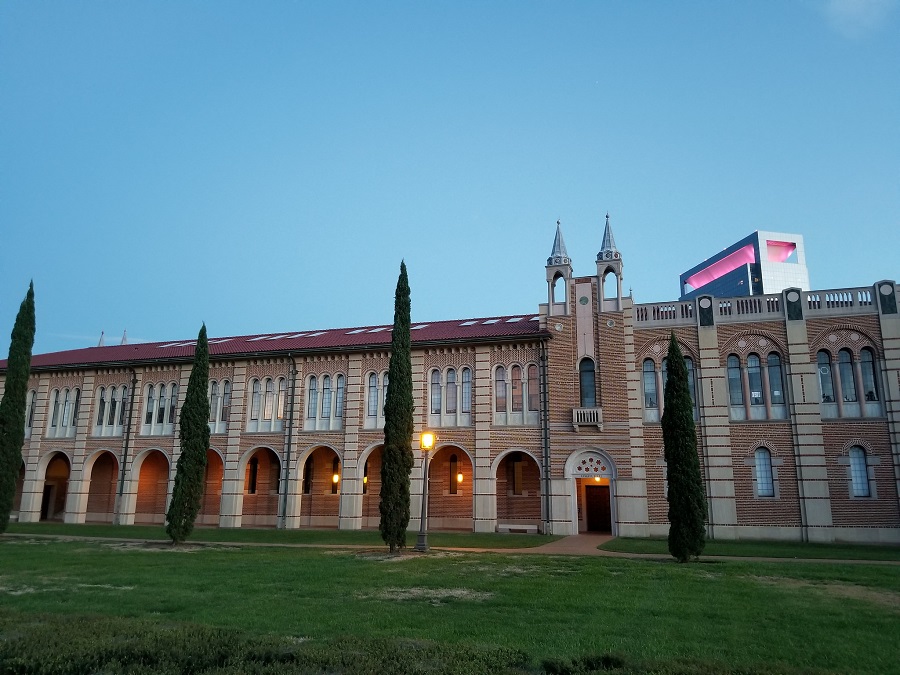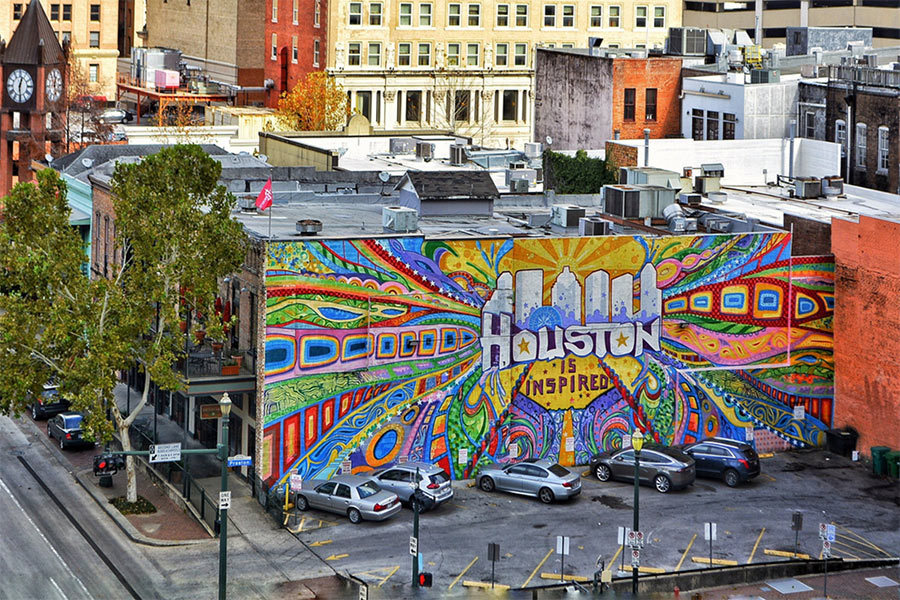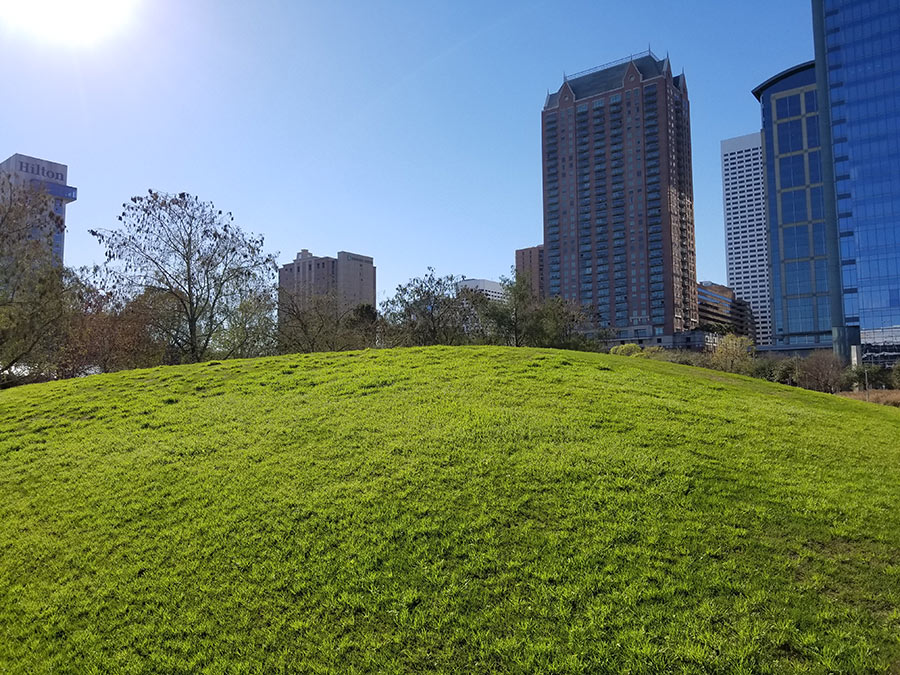
- 13.2-Acre Pasadena Tract First Listed for Sale 18 Years Ago Finally Off the Market [Realty News Report]
- Downtown’s Lancaster Hotel Reopens Oct. 15 After Work To Repair Harvey Damage [HBJ]
- Report: Houston Needs an Extra $2B in Federal Funds for Harvey Housing Relief [The Texas Tribune]
- Houston Isn’t So Affordable When Transportation Costs Are Factored In, Finds Kinder Institute Study [The Urban Edge]
- How Houston Is Planning for a Future with More People But Fewer Cars [Houston Public Media]
- Chris Shepherd’s Steakhouse Georgia James Debuts in Old Underbelly Space on Westheimer [Eater Houston]
- Buffalo Bayou Brewing Company Breaks Ground on New Sawyer Yards Brewery and Restaurant [Culturemap]
- New Vietnamese Eatery Banh Appetit Coming to Westchase [Eater Houston]
- Memorial Park Master Plan’s Eastern Glades Phase I Project Wraps Up [Culturemap]
- Every Single Building in the U.S., Mapped [New York Times]
Photo of Sewall Hall at Rice University, with Memorial Hermann Medical Plaza behind: Marc Longoria via Swamplot Flickr Pool
Headlines





Re: Report: Houston Needs an Extra $2B in Federal Funds for Harvey Housing Relief
Fat chance that they will get the additional $2B for “Blue” Houston after two hurricanes that hit “Red” states …. they rather take care of their own
Uber/Lyft adds cars, it doesn’t remove them. It pulls people away from public transit, biking and walking. Autonomous cars perpetually circling the block – searching for fares – may be an issue as well, particularly if there’s no limit to the number of autonomous cars a fleet owner can have.
You are probably right that in some markets, for some users, Lyft/Uber cannibalize on walking/biking/transit. In Houston, I doubt it. I can walk to amenities near my home, they are no more than 5 or 10 minutes away. No one (?) would Uber there. They might drive. I suppose you could bike, and then have nowhere to lock your bike…
I wouldn’t walk back 2 miles from a bar. I wouldn’t bike back 3 miles from a bar. If Lyft/Uber disappeared, I wouldn’t start walking or biking the 10 or 20 miles to the airport.
In NYC, which has a a functioning transit system, Lyft/Uber cannibalize. In Houston … ?
Maybe that’s true now, but I’d argue that a Greater Houston with 10 million people by 2040 will be very different. At any rate, to the extent that rail, buses, and BRT might reduce the number of car rides and reduce congestion, the proliferation of Uber/Lyft will run counter to that trend.
https://www.technologyreview.com/the-download/610383/ride-hailing-is-pulling-people-off-public-transit-and-clogging-up-roads/
https://www.kqed.org/news/11699063/city-analysis-uber-lyft-are-biggest-contributors-to-slowdown-in-s-f-traffic
From your first link: “42 percent of trips taken via ride-hailing services in Boston would have been completed on public transit had the option not been available. ”
What do you think the similar percentage in houston is today? Maybe it’s as high as 4.2 percent? I have to budget an hour to get to work on transit. By car it’s 12-15 minutes. Not going to bus it. Might lyft or uber if my car is in the shop. Can’t take transit to the airport any more. I did that once before they canceled the service.
If you really think that by 2040 large sectors of Houston will be dense like SF or Boston (your links) then I suppose you may eventually be right.